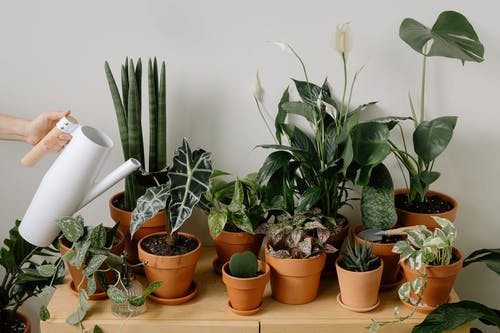Starting being a home gardener is a hobby that pulls its weight in terms of health benefits. Tending your garden has been shown to reduce stress levels, increase vitamin D exposure, and help with food insecurity. If you’re not sure where to start, online retailers like GardenTap can help you in your journey of gathering the essentials like nutrients, supplements, planters, and miscellaneous harvest tools. Before you know it, you’ll be ready to roll up your sleeves and get your gardening gloves dirty as the Home Gardener.
The garden offers fun physical exercise, delicious food, and gorgeous flowers. Here are eight best practices that will see your garden become evergreen.
Table of Contents
Start with great soil- the Home Gardener
Composting is a valuable skill that can benefit any gardener by significantly improving the condition of the soil in the garden. The better the soil, the more robust and more vigorous the plants. Make sure to start with a high-quality brand that contains the proper nutrients for what you want to grow. From there, you can add organic food waste like fruit peels and vegetable stems to reabsorb the nutrients into your soil.
Give great care to your timing
Not all vegetables grow in all types of weather. When planning out your garden, you’ll want to ensure that you’ve taken into account the needs of each specific plant. In other words, you really wouldn’t want to set out a hot-weather vegetable like sweet potatoes in March or a cool-weather vegetable like kale in June.
Companion gardening will make your job easier
There are certain crops that you will want to go near each other, and the reasons can vary as to why this side-by-side planting is a good idea. Some crops improve their companion’s taste when planted nearby, and some crops are beneficial for repelling pests that enjoy munching on their companion’s leaves or fruit.
Grow foods that you enjoy eating
One of the great benefits of growing food in your garden is the opportunity to try something new occasionally. But the bulk of the food produced in your garden should be fruits and vegetables that you and your family enjoy eating.
The right way to pull weeds
In addition to pests, weeds are probably the biggest headache to most gardeners, and while pulling weeds is part of the job, you’ll want to make sure that you’re pulling them the right way. It’s wise to weed the garden while the soil is wet and loose. This soil malleability will give you the best shot at pulling out the entire weed root. The weed will regrow if any part of the root remains in the soil.
Be on the lookout for disease and pests
Keeping an eye out for bites on leaves or fruit and dust or yellow leaves can be an early sign of pests or disease. If these signs happen, you’ll want to take action right away. Containing any outbreak from the start is always more successful than playing catch-up later.
Take care with fertilizer
Fertilizer is vital to ensuring that plants have all the necessary nutrients to achieve their full potential. Visiting a local garden center and asking for recommendations should alert you to an effective, safe fertilizer to meet your garden’s needs.
Enjoy yourself
The ability to provide at least some of the food you consume is impressive. Homegrown food allows for consumption at the peak of flavor and freshness and saves you money at the grocery store.
Wrap up
Gardening is a great hobby that will enrich your diet, waistline, and life. Why not plant the seeds of your family’s future today? Happy planting, and don’t be afraid to get your hands dirty.



















